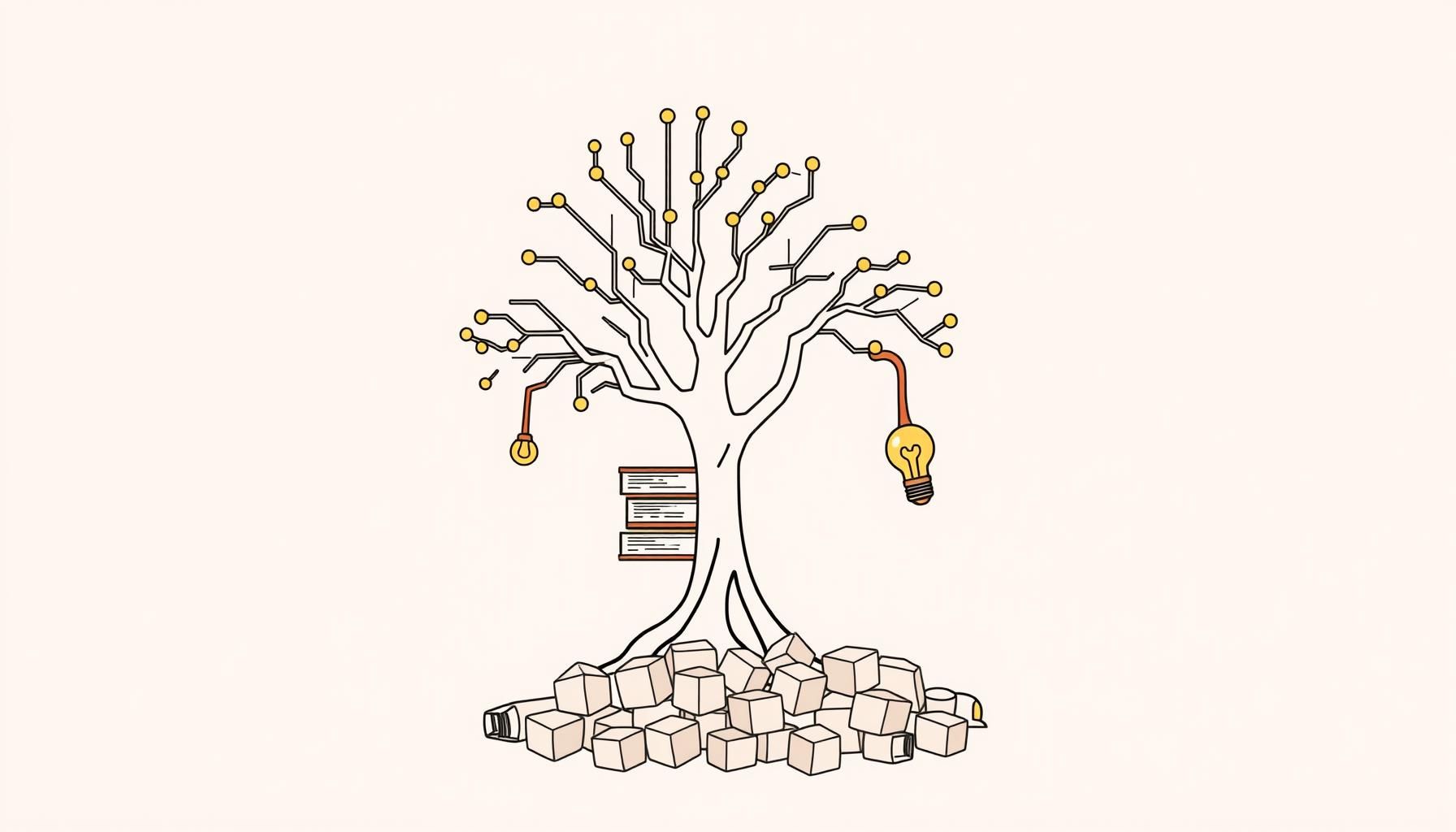
The overcast sky today creates a perfect cozy atmosphere for reflection—much like how parents should approach our evolving technological landscape. As the warm summer air blankets our neighborhood, I find myself thinking about how quickly artificial intelligence has become woven into our daily lives, changing how we work, play, and learn. Ever notice how kids see patterns everywhere? It makes me wonder if they’re actually showing us something profound about how technology learns too.
How Are Children and AI Similar Pattern Learners?
There’s a fascinating connection between how children learn and how artificial intelligence systems develop. Researchers have discovered that human cognition often works through information compression—simplifying complex data into patterns we can understand and use. When my seven-year-old daughter spots connections between seemingly unrelated things in her world, she’s doing exactly what advanced AI algorithms do: identifying patterns, creating mental shortcuts, and building understanding through experience. It’s breathtaking to watch this process unfold! Children teach us how AI learning models work through their natural curiosity.
Can We Apply AI Wisdom to Human Growth?
I stumbled upon a mind-blowing idea the other day: if AI systems are like our children and we educate them, why not apply that same educational approach to ourselves? The idea electrified me! Developers are actually using AI-inspired methods to help young people in rehabilitation, creating tools that transform overwhelming abstract goals into practical, achievable steps. When my daughter felt daunted about learning to read, we broke it down into small, manageable chunks—much like this AI method compresses complex information into recognizable patterns. The sparkle in her eyes when she finally read her first book? Pure magic in the making!
Does Nature Hold Keys to AI Learning?
The research suggests that consciousness itself results from massive information compression—the brain filtering countless bits of data into meaningful experiences. This helps explain why children naturally gravitate toward patterns and simplifications. When my daughter creates elaborate stories with her toys or explains complex concepts in simple terms, she’s engaging in this very process. These aren’t just charming childhood quirks—they’re evidence of her developing mind making sense of the world, and we can learn so much from how naturally she does it! The patterns in children’s thinking reveal insights about AI development.
How Do We Prepare Kids for an AI World?
Preparing our children for an AI-filled world doesn’t require turning them into miniature data scientists—thank goodness! Rather, it means nurturing the uniquely human skills that will remain invaluable: creativity, critical thinking, emotional intelligence, and ethical reasoning. The experts emphasize that collaborative activities are essential training grounds for the skills needed in tomorrow’s workforce. When my daughter and her friends decide to build a “robot city” with cardboard boxes, the negotiation over who creates which building and how to design transportation becomes a masterclass in collaborative problem-solving! Their little faces light up with joy as they find creative solutions together—a preview of the teamwork they’ll need in any future career!
Why Is Critical Thinking Vital for Digital Natives?
Critical thinking has never been more vital than in today’s information-packed world. Teaching our children to differentiate between facts, opinions, and biases is crucial. Show them how to verify sources, cross-check claims, and question authority (yes, even yours!). When my daughter encountered questionable information on her favorite educational app, we took the opportunity to explore the topic through multiple sources. She transformed from a passive consumer to an active investigator—the transformation was absolutely stunning to witness! The way children interact with AI-powered tools teaches us about media literacy challenges.
Where Does Technology Meet Traditional Learning?
Balancing technology with traditional learning requires thoughtful intentionality. AI is a powerful tool, but not a substitute for developing our own skills. When my daughter wants to explore new interests, we might use technology to identify different species of animals or historical facts, but then we’ll follow up with hands-on experiences—a trip to the museum, building a physical model, or conducting simple experiments together. Technology becomes a gateway rather than a destination, and she’s learning to use it wisely while still developing her own thinking abilities!
What Can AI Teach Us About Simplification?
Information compression concepts help us understand why children naturally simplify complex ideas. Just as AI seeks to find the most efficient representation of data, children instinctively look for the essential elements in what they’re learning. When my daughter struggled with understanding family dynamics, we focused on the underlying patterns rather than details—and suddenly she could navigate situations with more confidence! This approach—finding the essence rather than getting lost in details—can benefit learners of all ages, whether they’re seven or seventy! The parallels between children’s learning and AI processing show us valuable educational strategies.
How Can We Parent Confidently in the AI Era?
Parenting in the AI age fills me with such excitement rather than fear! We have the extraordinary opportunity to raise a generation that can harness technology’s power while maintaining their essential humanity. By nurturing curiosity, embracing play, and modeling lifelong learning, we prepare our children not just for future jobs, but for the challenges and opportunities we can’t yet imagine. Aren’t we incredibly fortunate to be on this journey with them?
That warm thought gives me goosebumps! As we navigate parenting in this technological revolution, may we approach each day with the same wonder and curiosity we hope to inspire in our children. After all, in our fast-paced, tech-saturated world, our children might just be the ones who can teach us how to learn, adapt, and thrive.
Source: Help me with Artificial Intelligence – What can a parent learn from their children?, Lesswrong, 2025-08-22 14:04:26
}
